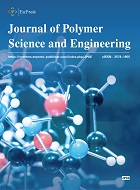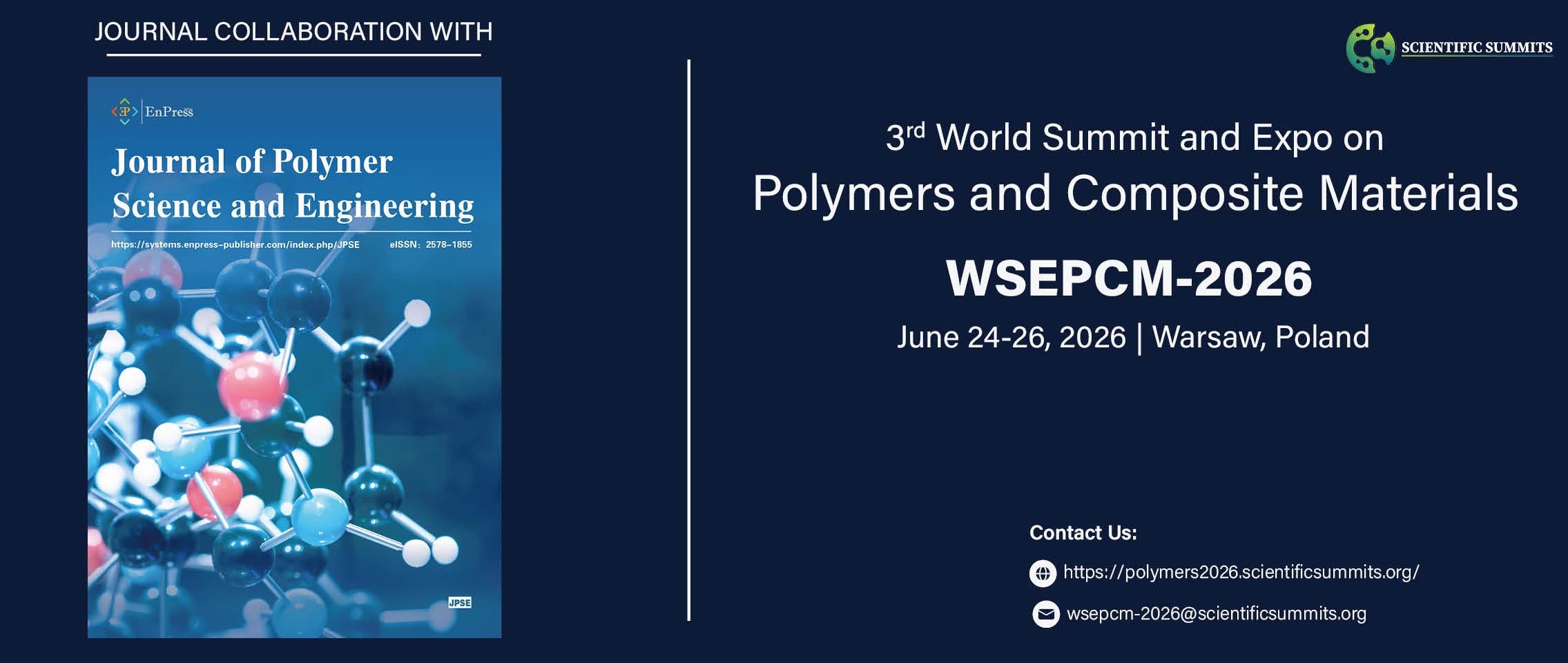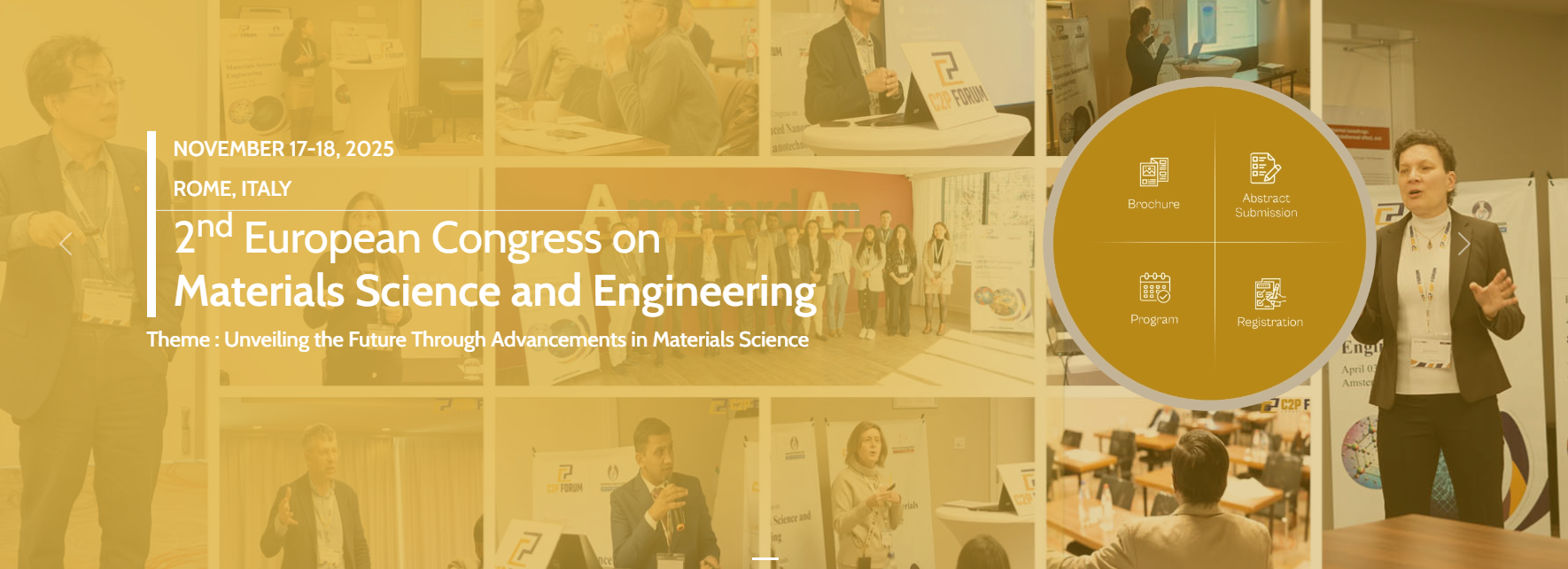|
Journal Abbreviation: J. Polym. Sci. Eng. |
Journal of Polymer Science and Engineering (JPSE) is a peer-reviewed journal dedicated to the rapid publication of fundamental research papers in all areas concerning polymerization techniques and recent advances of plastic engineering.
|
Online Submissions
Registration and login are required to submit items online and to check the status of current submissions.
Already have a Username/Password for Journal of Polymer Science and Engineering?
GO TO LOGIN
Need a Username/Password?
GO TO REGISTRATION
Submission Preparation Checklist
As part of the submission process, authors are required to check off their submission's compliance with all of the following items, and submissions may be returned to authors that do not adhere to these guidelines.
- The submission has not been previously published, nor is it under the consideration of another journal (or an explanation has been provided in Comments to the Editor).
- The submission file is in Microsoft Word format.
- Where available, URLs for the references have been provided.
- The text adheres to the stylistic and bibliographic requirements outlined in the Author Guidelines, which is found in About the Journal.
- If submitting to a peer-reviewed section of the journal, the instructions in Ensuring a Blind Review have been followed.
Privacy Statement
EnPress Publisher respects and strives to protect the privacy of its users and visitors. Hence, users and visitors are encouraged to read EnPress Publisher’s privacy policy regarding the usage and handling of user information.
(1) User information
Names and email addresses entered in all EnPress Publisher’s journal sites will be used exclusively for the stated purposes of the journals and will not be made available for any other purpose or to any other party. For submission and peer review, users should register an account for further procedures, including but not limited to name, email, address, interests, affiliation, and postcode, as editors need the information to complete in-house processes (e.g., processing a manuscript).
When users visit the publisher's website, information about the visit is saved in web logs (e.g., device, IP address, time of visit, etc.), which are only used to help improve the structure and content of the website.
(2) User rights
Users have the right to register or update their personal information and contact the publisher to cancel/delete their account if required.
(3) Third-party link
EnPress Publisher is not responsible for private information obtained by third-party websites when users log in via a pop-up screen from third-party software installed on their computer.
When users visit third-party platforms (e.g., LinkedIn, Twitter, COPE, etc.) through hyperlinks from EnPress Publisher’s journal websites, the privacy policy follows the policies of the third-party platforms.
(4) Queries or contact
For any queries about EnPress Publisher’s privacy policy, please contact the editorial office at editorial@enpress-publisher.com.
Article Processing Charges (APCs)
EnPress Publisher publishes all its journals in “gold” open access format. The scientific community and the general public are free of all restrictions on access (e.g., subscription) and free of many restrictions on using the content as soon as articles are published online. EnPress Publisher does not require readers to purchase any form of subscription to view the online version of the journals. In order for EnPress Publisher to defray editorial and production costs, authors of accepted articles are required to pay Article Processing Charges (APCs). The charges will come from authors' institutes or research funding bodies.
|
Journal |
APC |
|
Journal of Polymer Science and Engineering |
USD $1000 |
Waiver Policy
EnPress Publisher is committed to promoting academic development in the world without any financial barrier to knowledge sharing and learning. A waiver/discount policy has been developed especially for authors from low-income countries. Authors who are interested in applying for a waiver/discount may contact the editorial office of the journal. EnPress Publisher reserves the right to approve or reject any waiver application. APC waivers do not influence editorial decisions.
*Article No. is mandatory for payment and it can be found on the acceptance letter issued by the Editorial Office. Payment without indicating Article No. will result in processing problem and delay in article processing. Please note that payments will be processed in USD. You can make payment through Masters, Visa or UnionPay card.
Vol 8, No 2 (2025)
Table of Contents
Polymer–cement waterproof coatings couple the rigidity of cement and the elasticity of polymers into compositmembranes that prevent water penetration. In the system, polymer particles aggregate to form films in the cementitious matrix and hence plug up capillary pores and bridge micro- cracks].In this paper we present in depth case study of Dunlop K205—an acrylic polymer–cement coating for the Chinese market—and position the practical experience on the broader context of review of recent literature and commercial products. K205 was used to seal a high‑moisture bathroom in Santa Clara, USA. After six months, the coating was waterproof, flexible and did not delaminate even at elevated relative humidity.Compressive strengths and water absorptions are demonstrated in numerical results; polymer content is used to explain their variations in simulation. Comparison tables are provided among K205 and other products like Sika Damp Proofing Slurry, Drizoro Maxseal Flex and SinoMaco crystalline coatings. Permeability reduction formulas and bond strength formulas are derived for polymer contents. Real observations and simulation results for both of them are visualized by figures.We refer to $35$ articles — mostly which are published post-2020, according Vancouver style, wherein findings are reported and emphasized the benefits of polymer– cement waterproof coatings for residents as well as proper mixing, application and concerns related to sustainability issues.
Announcements
Journal of Polymer Science and Engineering accepted for inclusion in Scopus |
|
We are thrilled to announce that Journal of Polymer Science and Engineering (JPSE) has been officially accepted for inclusion in Scopus! This milestone reflects our commitment to advancing high-quality research and fostering global scholarly exchange. |
|
| Posted: 2025-08-13 | More... |
JPSE cooperates with WSEPCM-2026 as a journal partner |
|
|
|
| Posted: 2025-08-01 | More... |
Conference collaboration between JPSE and 2nd European Conference on Materials Science and Engineering |
|
|
|
| Posted: 2025-05-22 | More... |
| More Announcements... |





 Open Access
Open Access


